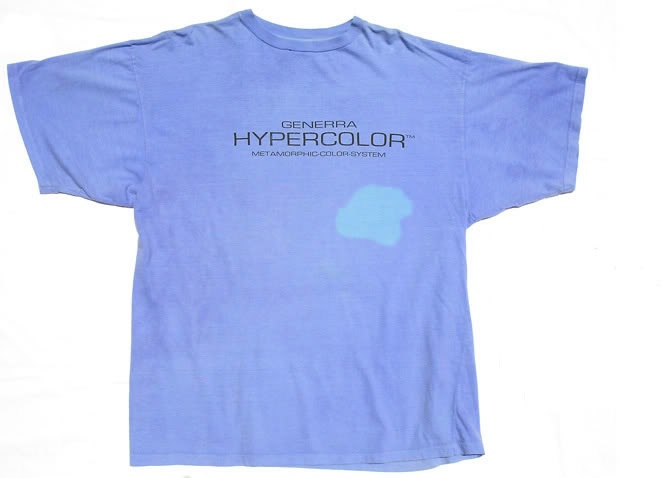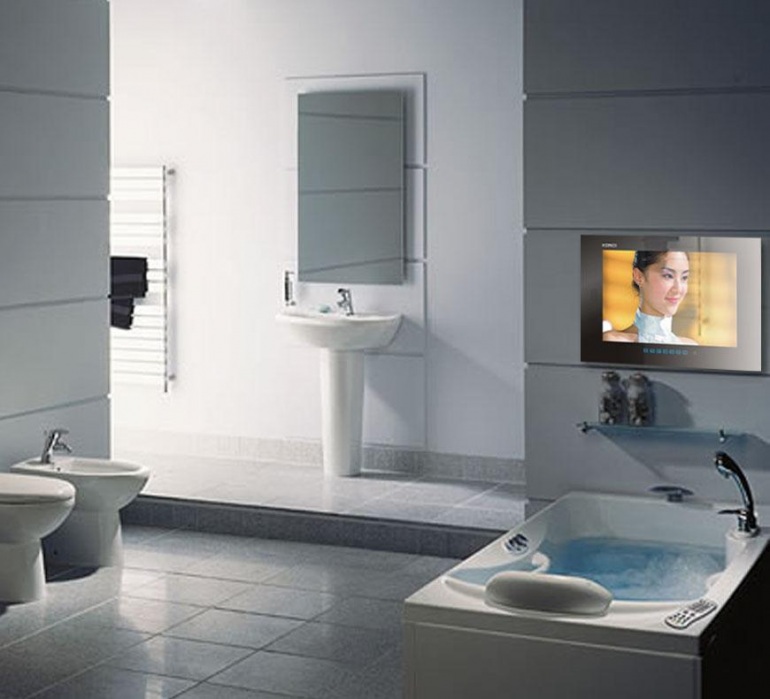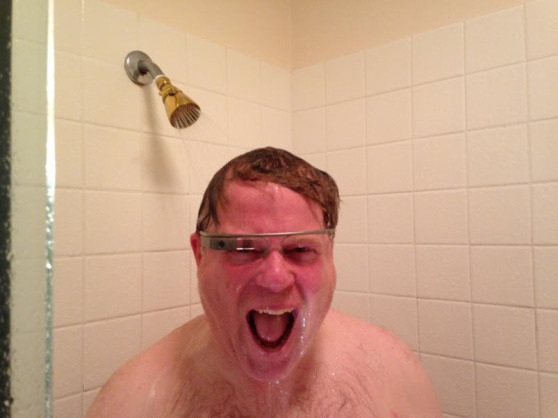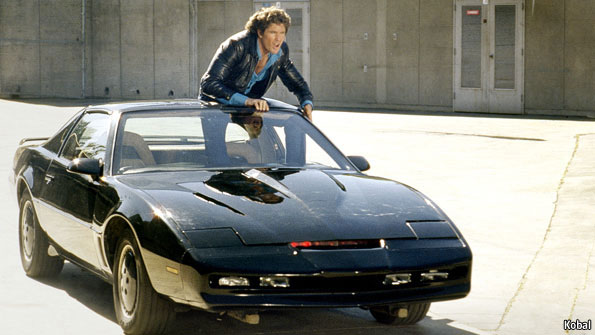Broken Glass won't hurt gung-ho Google
The year was 1989 when I had my first real encounter with what one could loosely call ‘wearable technology’. I was a Grade six student and for a six month period what I believed was the height of both fashion and technology was the Hypercolour t-shirt.
I wasn’t alone, many others felt the same way the world over. Remember the Hypercolour T-Shirt? It was a T-Shirt (obviously) that had the ability to change colour depending on your body temperature. What it created was a piece of wearable technology that was perfectly able to draw attention to a self conscious teenagers sweaty spots under their arms.

Pic: A Hypercolour T-Shirt (not the author’s)
When I got my first Hypercolour t-shirt my first thought was ‘This is now what I want all my clothing to be like’. Pants, jackets, socks, you name it. Six months later the Hypercolour T-Shirt was pushed to the back of my wardrobe and I had progressed to wanting every single piece of clothing I owned to be Stussy branded.
Truth be told I haven’t really thought much about ‘wearable technology’ since. The concept always has felt so faddish and unnecessary, the answer to a problem that no one has. Sure, I have owned a Walkman (and a discman, and a portable mini-disc player) but I’ve never seen the point of Bluetooth headsets and clipping your mobile phone to your belt. It seems so unnecessary. It’s like when you check into a hotel and there’s a TV in the bathroom. Just because you can doesn’t mean you should.

Pic: A TV in a bathroom
When Google announced it was launching Google Glass over 12 months ago my first impression was that it was a trade marketing play and not much more. The idea of wearing glasses connected to the Internet seemed like a prop in a Tom Cruise movie. I watched the first TVC around the concept and still wasn’t sold. It took a bunch of activities and showed how the product didn’t seem to add much. Plus the idea of wearing glasses that double as a camera felt creepy (and probably is).
After Glass became publicly available, messages started popping up in my social feeds of the chosen few who had accessed Glass. Most were white males, who worked in either media or technology, who wore their early adopter/innovator badges with real pride. The apparent uniformity of the early Glass devotees was evident to others. There is now a women of Google Glass Tumblr.
Truth be told, not many fashion or clothing products have become cool via an over-zealous fanbase of middle aged white men; I say that as a middle aged white man. The reality is the people wearing Google Glass in public are much, shall we say, less edgy than those wearing Glass in the companies promotional material. Take a look at this guy, tech evangelist Robert Scoble. His now infamous picture of him in the shower wearing Glass is a good way to squash any coolness the product might have. He may as well have taken a pic of him wearing the product whilst using the toilet. Even Google chief executive Larry Page said he “didn’t appreciate the photo.”

Pic: A white man in a shower wearing Google Glass
It raises the question, would you wear Google Glass? Not just try it, but wear it everyday like you do your watch or your glasses? Me? Right now I can’t see myself wearing it. It’s too public a statement and the idea of wearing a device that can record others, track my movements, take pictures with a facial gesture and give a company any further access to my intents and location is just not that interesting. Plus the current models for the product just seem a little douchey.
But that says more about me than the product. And even if Glass doesn’t take off it is a clear demonstration of the differences between Google and the rest of the media world.
Google is willing to take big risks and dream big. Glass is a living, breathing example of Google’s dedication to innovation and the pursuit of new technology. And in the face of intense competition for users, ad dollars and Wall Street support from Facebook, Google is pursuing an avenue that clearly differentiates it from the rest of the market. Facebook claims to make the world more open and connected, but it is not really demonstrating much value outside of its immediate domain. Google on the other hand is inventing things like Glass, developing self driving cars, and implementing fibre internet in some American towns. Google has much bigger dreams.

Pic: A self driving car
The media see this. Google is getting more attention than any of its contemporaries. While the media around Apple is focusing on lack of product development and a falling share price post Steve Jobs, Google is receiving more positive media attention than ever. The press reaction to Google’s I/O conference this week has been bigger than ever. Google is the market leader and is looked upon to forecast the future.
That is why the success of Glass is irrelevant. It doesn’t need to be a successful product, because as a marketing investment for Google it is so much more powerful. Glass demonstrates to Google’s users, partners and clients that it is focused and committed to investment in innovation. Glass as a product is something that doesn’t appeal to me, but the thinking and ambition behind it is to be applauded.
















